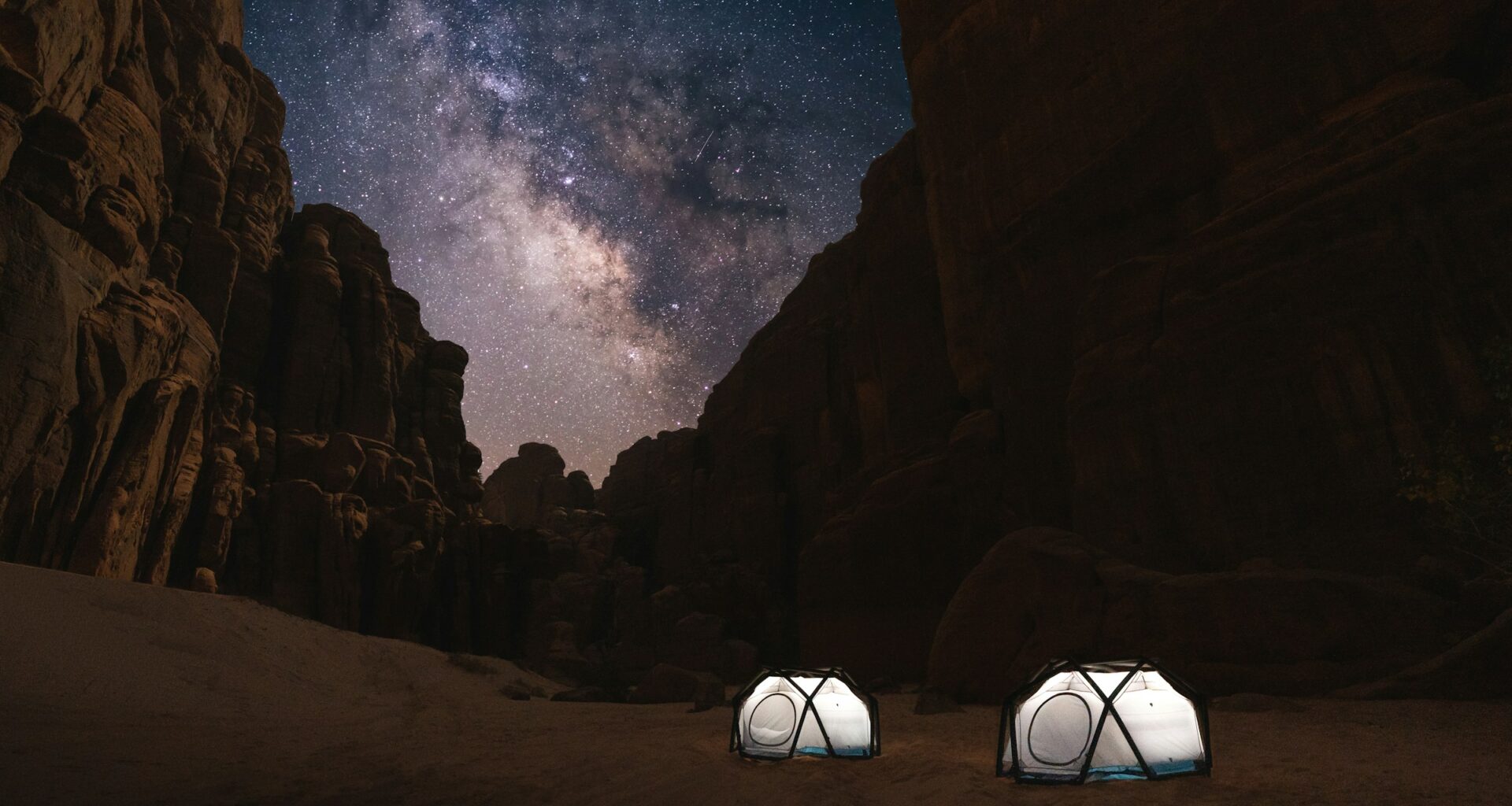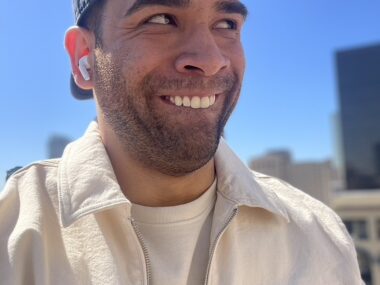In the depths of despair, when all seems lost and the world crumbles around us, we are called to an extraordinary act of faith: hoping in God against hope itself (Romans 4:18). This paradoxical journey of faith challenges us to trust beyond our understanding and find peace that transcends our circumstances. It’s a path walked by many before us, perhaps most famously by Abraham and Sarah, whose story serves as a powerful testament to unwavering faith in the face of impossibility.
Imagine, Abraham and Sarah were well past childbearing age, receiving a promise from God that seemed biologically impossible. Despite every logical reason to doubt, Abraham “believed in hope”. This wasn’t blind optimism, but a deep-rooted trust in God’s character and promises. Their journey teaches us that faith isn’t just about positive thinking; it’s about anchoring our hope in Someone greater than our circumstances.
Lessons from Abraham and Sarah: Focusing on the Promise Maker
The journey of Abraham and Sarah offers us profound insights into hoping against hope. Their story is not just about receiving a promise, but about maintaining faith in the Promise Maker, and Miracle-Worker Himself through years of waiting and seeming impossibility.
When God first called Abram (later renamed Abraham), He promised to make him into a great nation (Genesis 12:1-3). This promise came when Abram was already 75 years old and his wife Sarai (later Sarah) was barren. Yet, Scripture tells us, “Abram believed the Lord, and he credited it to him as righteousness” (Genesis 15:6).
Stargazing with Abraham
Picture Abraham standing under the vast expanse of the night sky, his weathered hands resting on his staff, his eyes fixed not just on the countless stars above, but on the One who created them. The cool desert air carries the whisper of God’s promise: “Look up at the sky and count the stars—if indeed you can count them. So shall your offspring be” (Genesis 15:5). In this moment, time seems to stand still. The impossibility of the promise—a son in his old age, descendants as numerous as the stars—collides with the majesty of the universe spread out before him. The weight of years hangs heavy on Abraham’s shoulders, each wrinkle and gray hair a testament to the long wait. Yet as he lifts his gaze to the heavens, a spark ignites within him, a flame of hope that defies the cold logic of his circumstances. Abraham’s faith isn’t rooted merely in the promise of descendants, but in the character of the Way Maker Himself.
As he gazes at the celestial tapestry, Abraham sees not just pinpoints of light, but testimonies to God’s creative power, His attention to detail, His ability to bring order out of chaos. Each star becomes a brushstroke in the masterpiece of creation, a testament to the artistry of the Divine. Galaxies stretching across the sky like a river of light, reminding Abraham of the God who parted waters and made paths through impossible places. In the constellations, he sees not the mythical figures of pagan lore, but the handiwork of a God who names each star and knows them intimately (Psalm 147:4-5). The vastness of space whispers of God’s infinitude, while the precision of celestial movements speaks of His meticulous care. Abraham’s heart swells with awe as he realizes that the same God who arranged this cosmic symphony has composed a promise just for him.
In this starlit moment, Abraham’s hope transcends the physical reality of his aged body and barren wife; it latches onto the nature of a God whose thoughts are higher than his thoughts, whose ways are higher than his ways (Isaiah 55:9). The cool night air seems to pulse with possibility as Abraham’s mind races beyond the boundaries of human understanding. He reflects on the journey that brought him here—leaving his homeland, wandering in foreign lands, facing famine and conflict. Each step of faith, each trial overcome, each promise fulfilled along the way becomes a star in its own right, a point of light illuminating God’s faithfulness. The barrenness that has defined his and Sarah’s life for so long begins to look different under this celestial light—not as an end, but as a canvas awaiting God’s miraculous brushstroke.
As the night deepens, Abraham’s connection with the Promise Maker intensifies. He understands that the God who could orchestrate this cosmic dance could surely choreograph the miracle of a son in his and Sarah’s lives, even when human logic said otherwise. The stars above him become more than a metaphor for his future descendants; they transform into a vivid illustration of God’s limitless power and boundless creativity. Abraham’s chest expands with a deep breath, filling not just with the crisp desert air, but with a renewed sense of purpose and expectation. In this moment, under the canopy of stars, Abraham doesn’t just believe in a promise—he falls in love again with the Promise Giver. His hope is no longer tethered to the realm of biological possibility, but soars freely in the unlimited expanse of divine potential. As dawn begins to paint the eastern sky, Abraham turns back to his tent, carrying with him not just a promise of descendants, but a profound encounter with the God who makes a way where there is no way.
Sarah’s Silent Struggle
Meanwhile, in their tent, Sarah lies awake, her own eyes tracing the patterns of the woven fabric above her. The intricate designs, barely visible in the dim light, seem to mirror the complexity of her emotions. While Abraham communes with God under the stars, she wrestles with a lifetime of unfulfilled longing. The promise of offspring isn’t just about continuing a lineage for her; it’s about healing the wound of barrenness that has defined her identity for decades. Each thread in the tent’s canopy becomes a year of waiting, a prayer unanswered, a hope deferred. The weight of expectation presses down on her like a heavy blanket, suffocating yet familiar. Sarah’s fingers absently trace her abdomen, feeling the emptiness that has brought her so much shame and sorrow. In this moment of vulnerability, she allows herself to acknowledge the depth of her pain, the bitterness that has taken root alongside her faith.
As she listens to the night sounds of the camp—the distant bleating of sheep, the rustle of wind through palm fronds, the soft murmur of guards on duty—Sarah ponders the nature of the God who sees. Throughout their journeys, she has witnessed God’s guidance and provision, yet the deeply personal promise of a child remains unfulfilled. Now, in the solitude of the night, Sarah grapples with the idea that this God sees her too—her pain, her doubt, her secret hope. She imagines His gaze, not judgmental or disappointed, but filled with compassion and understanding. It’s a gaze that penetrates the layers of her pretense and self-protection, reaching the core of who she is. Sarah finds herself wondering: if God truly sees her, why hasn’t He answered the deepest cry of her heart? The question hangs in the air, heavy with the weight of years of longing.
In this moment, as the cool night air seeps through the tent walls, a new perspective dawns on Sarah like the first light of sunrise over the desert horizon. Perhaps, she muses, the delay in fulfilling the promise isn’t a denial, but an invitation to know the Promise Giver more intimately. The years of waiting, which had felt like a cruel joke or a divine oversight, begin to take on a different hue in her mind. What if every month of disappointment, every whispered prayer, every tear shed in secret was actually drawing her closer to the heart of God? Sarah’s breath catches as she begins to understand that her worth isn’t tied to her ability to bear children, but to the love of the God who chose her. The revelation washes over her like a gentle wave, eroding the walls of resentment and self-doubt that she had built over the years. She starts to see her barrenness not as a punishment or a failure, but as a crucible in which her faith is being refined and strengthened.
As Sarah finally drifts off to sleep, her heart echoes the truth that would later be penned in Hebrews 11:11—that she would be enabled to bear a child because she considered faithful the One who made the promise. The tent around her fades from her awareness, and in her mind’s eye, she sees herself standing under the same star-filled sky as Abraham. But instead of counting the stars, she finds herself lost in the gaze of the Star Maker. In this dreamlike state, Sarah feels a peace she hasn’t known in years, a sense of being fully known and fully loved, regardless of what her body can or cannot do. She begins to understand that the true miracle isn’t just the promised child, but the transformation happening within her heart. In the quiet of the night, both Abraham and Sarah, in their own unique ways, begin to grasp that their hope lies not in the stars, not in the fulfillment of the promise, but in the One who hung the stars in place and who authors every promise. As the first light of dawn begins to filter through the tent walls, Sarah stirs, awakening not just to a new day, but to a new understanding of faith and a deeper trust in the God who sees, knows, and loves her completely.
As years passed and the promise remained unfulfilled, Abraham and Sarah faced numerous trials that tested their hope:
- The Hagar Incident: When Sarah, in her impatience, suggested Abraham have a child with her servant Hagar, it led to complications and heartache. Yet even in this misstep, we see God’s faithfulness. He appeared to Hagar, demonstrating that He sees and cares for the outcast (Genesis 16:13). This reminds us that the Promise Maker is also the Miracle-Worker in unexpected ways.
- The Long Wait: Abraham was 86 when Ishmael was born to Hagar, and 99 when God reaffirmed His covenant and promised a son through Sarah. Romans 4:19 says, “Without weakening in his faith, he faced the fact that his body was as good as dead—since he was about a hundred years old—and that Sarah’s womb was also dead.” Their unwavering hope in the face of biological impossibility demonstrates a focus not on circumstances, but on God’s unlimited power.
- Sarah’s Laughter: When Sarah overheard the promise of a son, she laughed in disbelief (Genesis 18:12). Yet God’s gentle rebuke, “Is anything too hard for the Lord?” (Genesis 18:14) redirected her focus from her limitations to God’s limitless ability. Hebrews 11:11 later commends her faith: “And by faith even Sarah, who was past childbearing age, was enabled to bear children because she considered him faithful who had made the promise.”
- The Ultimate Test: The pinnacle of Abraham’s faith journey came when God asked him to sacrifice Isaac, the very son of promise. Abraham’s willingness to obey, even when it seemed to contradict God’s earlier promise, shows the depth of his trust in God’s character. Hebrews 11:19 tells us that Abraham reasoned God could even raise the dead. This reveals that Abraham’s hope was not in the specific outcome, but in the unlimited power and wisdom of the Miracle-Worker.
Throughout their journey, Abraham and Sarah learned to keep their gaze fixed not on the biological impossibility before them, but on the God who had proven Himself faithful time and time again. They anchored their hope not just in what God had promised, but in who God is—His faithfulness, His power, His love, and His unchanging character.
Their story teaches us that hoping against hope isn’t about blind optimism or positive thinking. It’s about knowing the character of God so intimately that we can trust Him even when circumstances seem to contradict His promises. It’s about focusing on the Promise Maker rather than just the promise itself.
In our own journeys of faith, when we face situations that seem hopeless, we can draw strength from Abraham and Sarah’s example. We too can choose to:
- Remember God’s faithfulness in the past
- Focus on God’s character rather than our circumstances
- Trust in God’s power to do the impossible
- Act in faith even when our feelings don’t align
- Keep our eyes on the eternal perspective, not just the immediate situation
As we do this, we open ourselves to experience the kind of peace that Abraham and Sarah must have felt when they finally held Isaac in their arms—a peace that surpasses all understanding, rooted in the faithfulness of our Promise-Keeping God.









4 comments
Excellent teaching on hope. Understanding that all of us are challenged with trials and opportunities to see the God who sees us, to learn of His abiding love, and His faithfulness to His promises. I appreciate the practical steps any of us can take to examine our past trials, God’s fulfillment then, and faith for the present and future – regardless or circumstances or personal failings. God who created each of us knows us better than we know ourselves. His faithfulness is not contingent upon our actions or inactions, but upon who He is and whose we are. Thanks for inspiring hope in many of us.
This is Good read! Each word and thought truly gives a personal perspective that in truth many go through. What stood out to me and made me smile first was “ In the constellations, he sees not the mythical figures of pagan lore, but the handiwork of a God who names each star and knows them intimately (Psalm 147:4-5).” Because that’s me. When I look up to the nights sky and each time Gods handiwork takes my breath. You had me wonder about before the promise and how they looked up to the nights sky how incredible the change was to look up after God promised. It was a reminder to them every night. And although it wasn’t immediate they had something to hold onto every night, to keep hope alive.
xKwsFCXP
hpaKXUkAdmlVYGZ